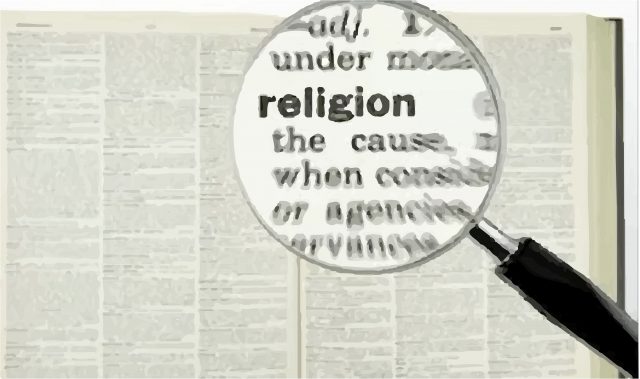In the last century, the Western world has experienced a seismic shift in religious dynamics, most notably marked by the decline of Christianity as a dominant force. This change, particularly pronounced in Europe, reflects a broader evolution in how individuals engage with religion and spirituality. With declining church attendance and the rise of religiously unaffiliated individuals, this shift demands a closer examination of the role religion plays in our ever-changing world.
One compelling indication of this shift is the contrast between the number of Muslims attending Friday prayers at mosques in England and Anglicans attending Sunday church services in the same country. Surprisingly, despite Muslims constituting just six percent of the English population, their mosque attendance surpasses that of Christians, including Anglicans. This striking trend underscores the evolving religious landscape in contemporary European society.
The New York Times recently reported on the emergence of the religiously unaffiliated, often referred to as “NONES”. This group has become the second-largest religious category in both North America and most European countries. In the United States, they now constitute nearly a quarter of the population. This phenomenon reflects changing attitudes toward religion and spirituality, with a growing portion of the population identifying as non-religious or secular.
While these shifts in religious affiliation might be seen as mere statistics, it has profound implications for how individuals perceive themselves, their beliefs, and fundamental questions about life. It influences how parents raise their children, shape interactions with family, friends, and relatives, and guide individuals in navigating the complexities of existence.
Amid these changes, it is essential to explore the impact of religion on contemporary society and whether it remains relevant in an increasingly secular world.
Religion as a Moral Compass
One of the enduring roles of religion in human history has been its function as a moral compass. Religion provides a framework for understanding right from wrong, and virtues from vices. The moral principles enshrined in religious texts and teachings serve as guideposts for ethical living.
The Ten Commandments in Christianity, the Five Pillars of Islam, etc., are just a few examples of how religious traditions impart ethical values to their followers. These principles foster a sense of accountability, compassion, and empathy, shaping how adherents interact with the world and those around them.
The decline in religious affiliation raises questions about the sources of moral guidance in contemporary society. If religion loses its influence, what replaces it as a moral compass? Are secular ethical systems equipped to fill this void?
Religion and Mental Well-being
Beyond moral guidance, religion has been associated with positive effects on mental well-being. Studies have consistently shown that higher religiosity is correlated with lower suicide risk and reduced odds of experiencing suicidal thoughts and attempts. While religion’s impact on mental health is complex and multifaceted, it suggests a protective influence.
Research indicates that religious individuals often have stronger social support networks, which can mitigate the negative effects of stress and adversity. Moreover, the sense of purpose and community provided by religious institutions can contribute to improved mental health outcomes.
For example, a study published in the American Journal of Preventive Medicine found that religious service attendance was associated with decreased suicidal ideation scores, even when accounting for social support. This suggests that religion can play a unique and independent role in promoting mental well-being.
As the Western world witnesses a decline in religious affiliation, it is essential to consider the potential consequences for mental health and well-being. Are there alternative sources of community and purpose that can provide similar benefits?
Religion’s Response to Modern Challenges
Religion has historically been a source of solace and guidance in times of crisis. Whether facing personal hardships or broader societal challenges, individuals have often turned to their faith for comfort and direction. In the face of modern challenges such as climate change, political polarization, and the mental health crisis, can religion continue to provide meaningful responses?
One argument is that religion’s teachings on compassion, stewardship of the Earth, and social justice can offer valuable perspectives on addressing contemporary issues. Religious organizations have the potential to mobilize communities and resources to tackle global challenges collectively. The principles of empathy and solidarity inherent in many religious traditions can inspire individuals to take action for the betterment of society.
The Quest for Meaning
Perhaps one of the most fundamental aspects of religion is its role in addressing questions of meaning and purpose. Religion grapples with profound inquiries about the purpose of life, the existence of a higher power, and the nature of the afterlife. These questions transcend the boundaries of scientific inquiry, leading individuals to seek answers beyond empirical evidence.
For many, religion provides a framework that imbues life with meaning and significance. It offers a narrative that extends beyond the finite boundaries of human existence, offering a sense of purpose that transcends the material world.
In a world where scientific advancements have transformed our understanding of the universe, some argue that religion remains a vital source of meaning in an otherwise vast and indifferent cosmos. Religion provides a narrative that offers solace in the face of existential difficulties & uncertainties.
The Ease of Religion
Despite the complex theological and philosophical questions religion grapples with, its appeal lies in its accessibility. Religion presents a system of beliefs and practices that are readily available to all, regardless of social status or educational background.
Consider the essentials for human survival—air, water, and food. These necessities are universally accessible with minimal effort. In a similar vein, religion is accessible to anyone seeking answers to life’s profound questions. It offers a path to understanding the mysteries of existence, the purpose of life, and the quest for inner peace.
The Quran, for instance, emphasizes the ease with which individuals can access religious guidance:
“Allah intends ease for you, and does not want to make things difficult for you” (2:185).
The teachings of the Prophet Muhammad further reinforce this notion by emphasizing that “religion is easy.”
This understanding is further implemented by the mercy sent to mankind, Prophet Muhammed [PBUH], in the narration reported by, Aisha [RA], who said; Whenever the Prophet [PBUH], has a choice between two matters, he would choose the easiest, unless it is sinful (act). [Bukhari].
Conclusion
In our rapidly changing world, religion stands at a crossroads. It continues to provide moral guidance, support mental well-being, and address modern challenges. Yet, the decline in religious affiliation prompts reflection on the evolving role of religion in contemporary society. As individuals and societies grapple with questions of meaning, ethics, and community, the enduring appeal of religion as a source of purpose and solace remains a compelling topic of exploration.
Religion has always evolved to meet the needs of its adherents. In the face of changing demographics and societal norms, religion may continue to adapt and find new ways to offer meaning and guidance. As we navigate an increasingly complex world, the role of religion in shaping our individual and collective destinies is a question that will continue to define our journey.
References
Religion & Suicide: New Findings. https://www.iecj.com.br/wp-content/uploads/2019/09/religion-and-suicide.pdf
National Alliance of Mental Illness. https://www.nami.org/Blogs/NAMI-Blog/December-2016/The-Mental-Health-Benefits-of-Religion-Spiritual
A National Study on Religiosity and Suicide Risk by Sexual Orientation. https://www.ajpmonline.org/article/S0749-3797(22)00454-8/fulltext
The Need for Religion – Dr. Yasir Qadhi. https://www.youtube.com/watch?v=FTZllYo7fJo







Indeed an eye opening article. Very well put together. Kudos to the author 👏👏